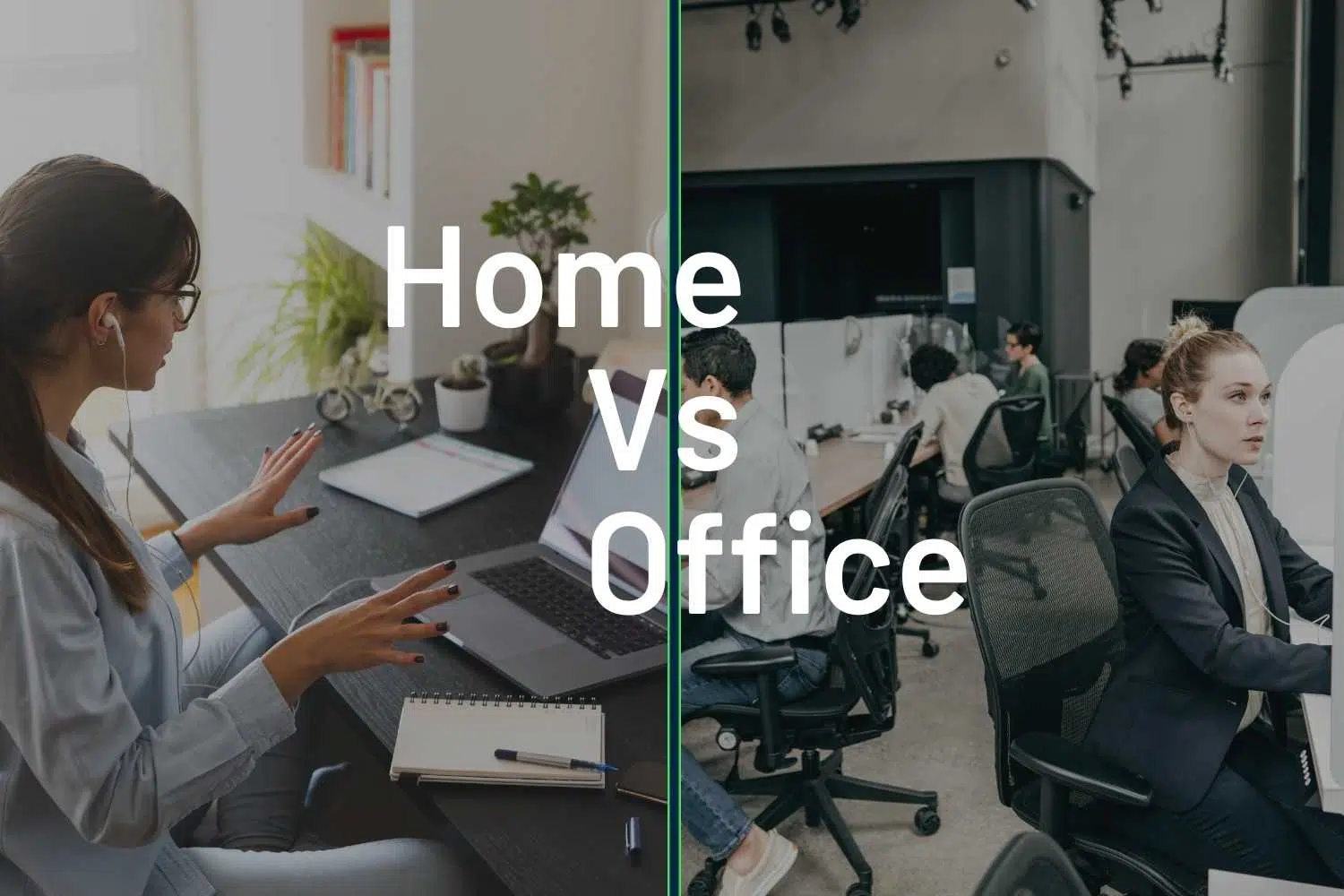
Revolutionising Energy Management in UK Businesses
In an era where sustainability is not just a buzzword but a business imperative, UK companies are increasingly turning to innovative solutions to manage their
This topic is something that has been the cause of much debate of late but in all honesty, has been going on for many a year. The difference has been that there has been no major catalyst to move us from the former way of working to some kind of hybrid situation that we find ourselves in presently.

So, do people work as hard when working from home compared to working the office? With the way technology has developed over the last few years, for many roles, some people believe there is no reason for them to be in the workplace anymore, because tasks can just as easily be carried out remotely.
Much of the old scepticism still exists around WFH, but the big question is, is this justified or is there very little to worry about? Are you measuring, monitoring and managing data available to you to make data driven decisions based on performance, wellbeing, health, productivity?
Part of this debate also depends upon the way a company is structured. To enable this discussion, we will talk in general terms about typical employees and assume that they are all sufficiently motivated to get their jobs done.
Having invested money in office space, which when full, creates a real “buzz” it is easy to see why so many companies want to see employees back in the office. Much of current management best practice requires people to be present so that teams can be properly directed and managed and get a “visual” of the work that has been undertaken.
This type of thinking cannot be undone overnight, it is over 2 years now since some companies allowed their staff to fully work remotely and yet there is often still an underlying fear that work is not completed as well or as thoroughly when is done from home compared to the office.
There is an entire tier of mid-management with job roles primarily dependent upon watching the work of others.

Depending on the set-up that your teams have remotely, workspaces may not be set up as well as the main company office. Considering the time and effort that has likely gone into making office spaces productive environments, hesitance is understandable.
“Increasingly, big organisations are using environmental psychology in their office design, creating interesting spaces which aim to foster a social and communicative atmosphere. Certain design aspects will provoke a particular psychological response. For example, a visually vibrant workspace can encourage creativity.”
There is a potential issue around understanding the roles above and below each team member. In a more traditional office environment, a key benefit has always been that people get to see what their peers and seniors do. This helps share knowledge and skills on a deeper level, thus benefiting the company by maintaining the company culture and also the intellectual property that has developed over time, to maintain a competitive advantage.
This knowledge and skill sharing is also crucial for individuals personal development, job satisfaction, and career progression. If your team is no longer able to see what their manager does within their regular duties, it will take longer for them to fit into the role in the future.
Some of this can be covered by frequent video calls to teach people what is needed, but many will struggle to learn effectively in this manner, potentially creating a real problem.
For many employees, having spent years dealing with the daily commute, many are over the moon with the newfound freedom that working remotely brings.
The ability to WFH, be more flexible, partake in all the things that used to be missed whilst commuting, like picking up the kids from school, or having extra time to cook healthy dinners, is hugely popular with many employees. There is also the huge cost benefit, with many major commuting options costing £1000s per year. So working from home makes a big difference to the bank balance too, (especially with the fuel prices these days)!
Why, as a dedicated employee of many years, who has always carried out exemplary work, should I not be trusted to achieve the same level of productivity working from home? Why should it be assumed that at every opportunity I will be hiding away watching Netflix when I have always worked extremely hard for my company and wish to see it prosper? (According to the Times some at the DVLA did watch Netflix instead of working)

There is a big gap between both viewpoints but both views have merits, the question is, where does that leave employers and the workforce moving forward when there is a clear conflict of views? Well maybe if we look towards highly innovative, aspirational companies to see what they are doing we might be able to get some answers.
Once again, there is a large mixture of opinions on this topic. Elon Musk famously tweeted to Tesla staff to “either come back to the office or find a new place to work”. Compare that to Facebook, where Mark Zuckerberg has stated that “people are free to work from anywhere” that they choose.
It is interesting to see that they should take such different paths when both a clear leader in their field. Many of the big banks in London are still happy for their teams to work remotely but if you look at other major cities outside of London, most people are back in the office.
There are additional factors that need to be considered within this debate. Currently, we are in an employee-favoured labour market, so they very much hold the power when it comes to making these decisions.
This could well change though with a recession likely to be on its way.
It will certainly be a very different discussion once companies no longer need to be afraid of its workforce leaving rapidly should it enforce a practice that is not as popular.
What about the world of Academia, will they provide us with some needed insight? Similar to the rest of us, Academic studies are very much divided on the answer, with some studies showing minimal changes to employee productivity, some show increased productivity and others demonstrating that a company can be severely impacted in both the short and longer term if people don’t return to the office.
So, what should your company do? If you have teams that have always been very separate with little to no crossover, it should be possible to create a good system around remote working with occasional team meetings.
The answer is somewhat different however if your business is dependent on the cross-pollination of ideas and concepts amongst different teams. In this scenario it is likely to have a hugely detrimental effect on your business in the long term because no matter how hard you try; it is very difficult to replicate this virtually for any extended time.

Long-term detrimental effects may well vary by organisation. Whereas from conversations we are having with our customers their key business decision makers are anticipating, and trying to prevent, negative impacts on staff retention, business culture, company knowledge, and ultimately competitive advantage and growth potential.
Whichever way you do decide to approach this challenge retaining company culture and close team bonds is worth working hard to achieve and is ultimately going to be something that has the biggest effect on your overall productivity.
McKinsey recently published a report which very much supports this approach. Titled “Returning to the office can be a choice, not a challenge,” it focuses on the relationship and decision-making process about where and how to work.
“The downside of a hybrid work model is determining where, when, and why to co-locate with colleagues or clients, and even where to sit upon arrival. This uncertainty can cause decision fatigue, prompting employees to fall back on familiar patterns to avoid the hassle. Many employers try to avoid this complexity by mandating office presence, but there’s a better way.”
This highlights similar issues discussed earlier but the report does put forward the solution.
A thoughtful, transparent, and data-driven approach to designing workplace and workday options simplifies employees’ choices, making it easier to spend the right moments together.
This includes “nudging”—the practice of helping people make the best choice by designing the options in a way that influences, but doesn’t restrict, the outcome. Small design changes, called “choice architecture,” have a big role to play in enabling informed decisions. For example, calendar and/or resource booking data can be used to notify employees when their colleagues are statistically likely to be in the office. The magnetic presence of collaborators and friends could inspire someone to make the commute.”
So, there is light at the end of the tunnel. By carefully developing a culture and workspace that promotes sensible decision making it is possible to get the best of both worlds, one where employees feel empowered to work how they feel works best and enabling a company to keep its culture and organisation alive.
Find out how Envelo can help you deliver a more desirable, productive and healthy workplace and book a consultation with a member of our team.

In an era where sustainability is not just a buzzword but a business imperative, UK companies are increasingly turning to innovative solutions to manage their

In the dynamic world of work, it is crucial to adapt to emerging trends that shape the future of our workplaces. As we approach 2023,

Embracing Innovation with Envelo for Sustainable Business Operations In today’s business landscape, there has been a remarkable shift in the way organisations approach energy consumption.
Complete our survey below to see how your business performs.
Wanting to improve your workplace health and well-being, whilst reducing workplace sickness and improving productivity? Book a demonstration with one of our team today, and see how Envelo can monitor, manage and improve your workplace environment.
Envelo protects people from viruses and pollution and helps improve their wellbeing using prevention methods and app-driven monitoring technology.

Envelo Solutions Ltd (Company Number: 13100630)
Complete the form below to see Envelo’s smart technology platform in action. We’ll get back to you within 24 hours to schedule the best date and time to suit you.